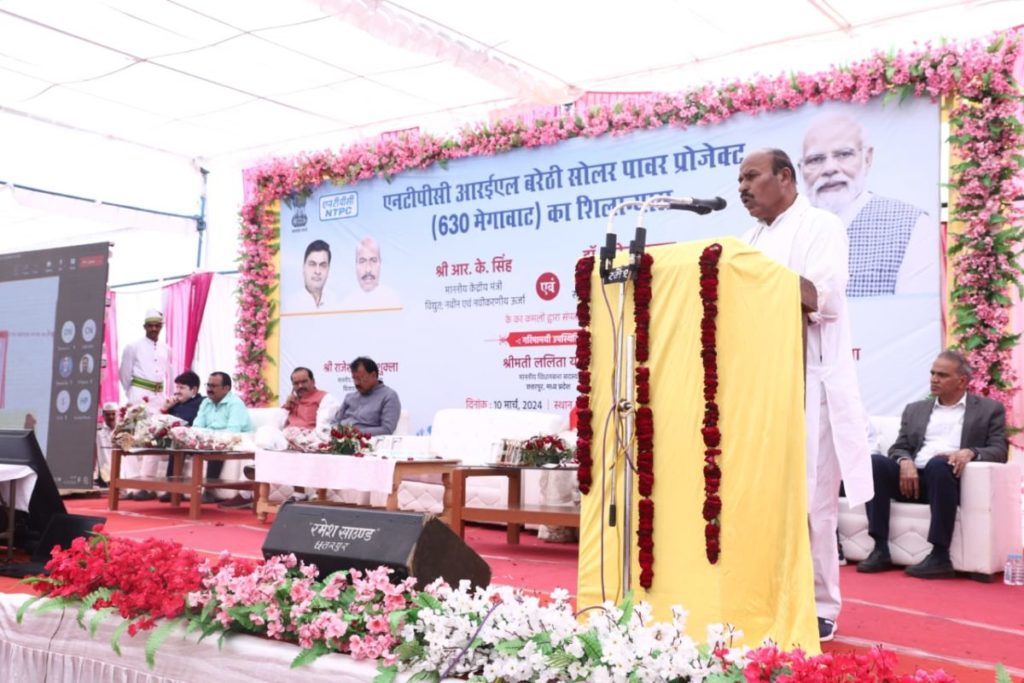
NTPC Limited, an Indian power company owned by the government’s ministry of power, has started construction at its 630MW Barethi solar project in the state of Madhya Pradesh.
Construction started on Sunday 10 March, when minister of power and new and renewable energy Shri R K Singh, and minister of social justice and empowerment Dr Virendra Kumar, laid the foundation stone for the new project. The project is being developed under UMREPP Mode-8, an initiative to improve state government support for “ultra mega renewable energy power parks”, as India looks to expand its renewable power sector.
Unlock unlimited access for 12 whole months of distinctive global analysis
Photovoltaics International is now included.
- Regular insight and analysis of the industry’s biggest developments
- In-depth interviews with the industry’s leading figures
- Unlimited digital access to the PV Tech Power journal catalogue
- Unlimited digital access to the Photovoltaics International journal catalogue
- Access to more than 1,000 technical papers
- Discounts on Solar Media’s portfolio of events, in-person and virtual
Or continue reading this article for free
“Ours is the fastest growing large economy in the world and our power demand too is growing fast,” said Singh. “We need to add more power capacity to meet the growing demand. The Barethi solar power project is very important since it is 630MW and further it is clean energy.”
The news is the latest investment into the Indian solar sector, following Adani Green Energy’s commissioning of a 551MW project in Gujarat last month. India’s Central Electricity Regulatory Commission (CERC) has also released new draft regulations for the tendering process for power projects, which raise the prospect that tariffs for solar projects in particular will continue to rise, as solar development in the country continues to be a lucrative investment destination.
NTPC noted that it would invest around US$386.7 million (INR32 billion) into the project, and that the facility would help meet its targets of installing 60GW of renewable power capacity by 2032. The company aims for non-fossil fuel power sources to account for between 45-50% of its power portfolio within the next eight years, as it looks to decarbonise its operations.
At last year’s India Energy Transition Summit, Singh announced plans to expand India’s renewable electricity generation capacity to 500GW by 2030, up from 180GW at the end of 2023.
